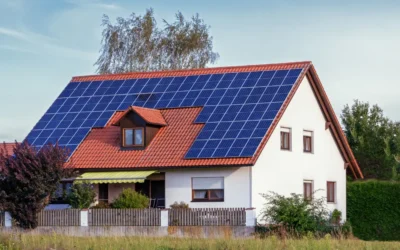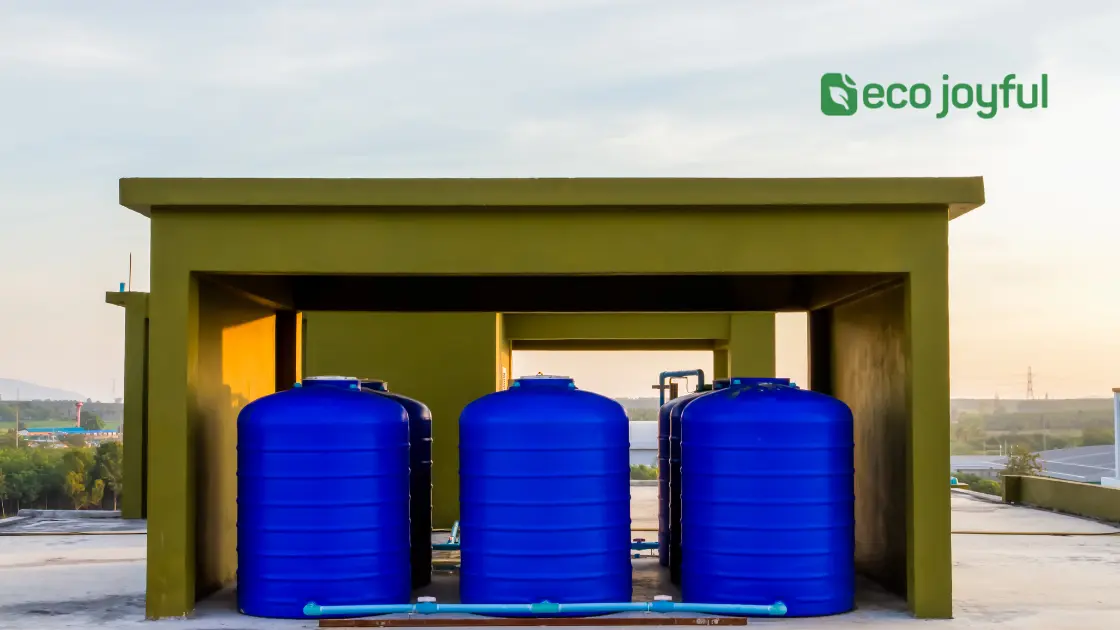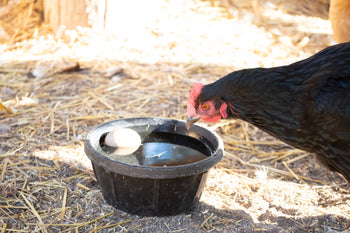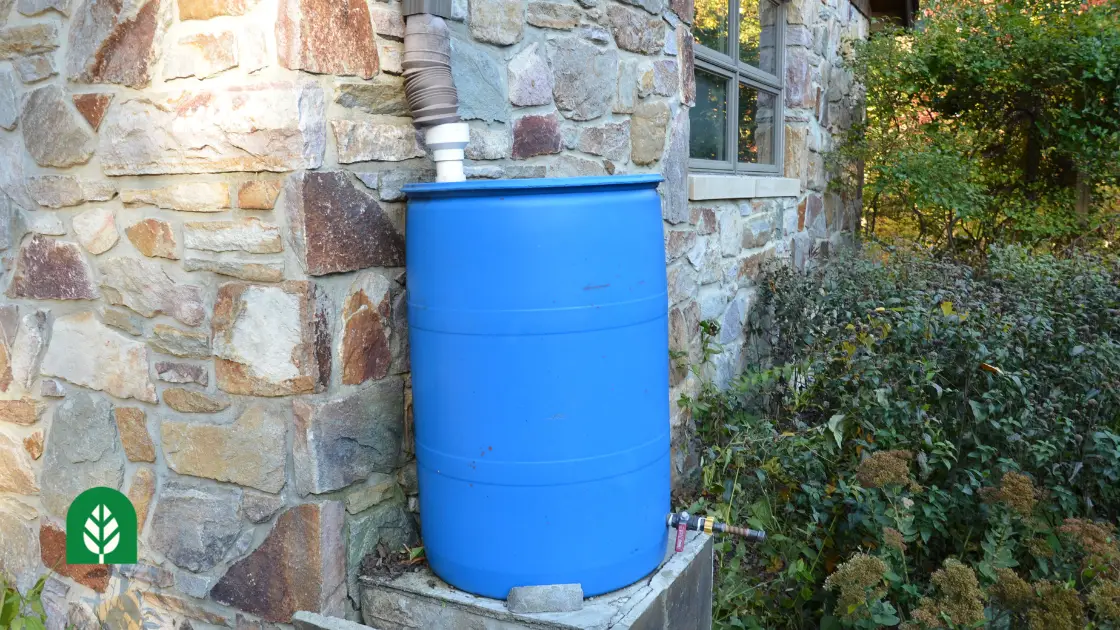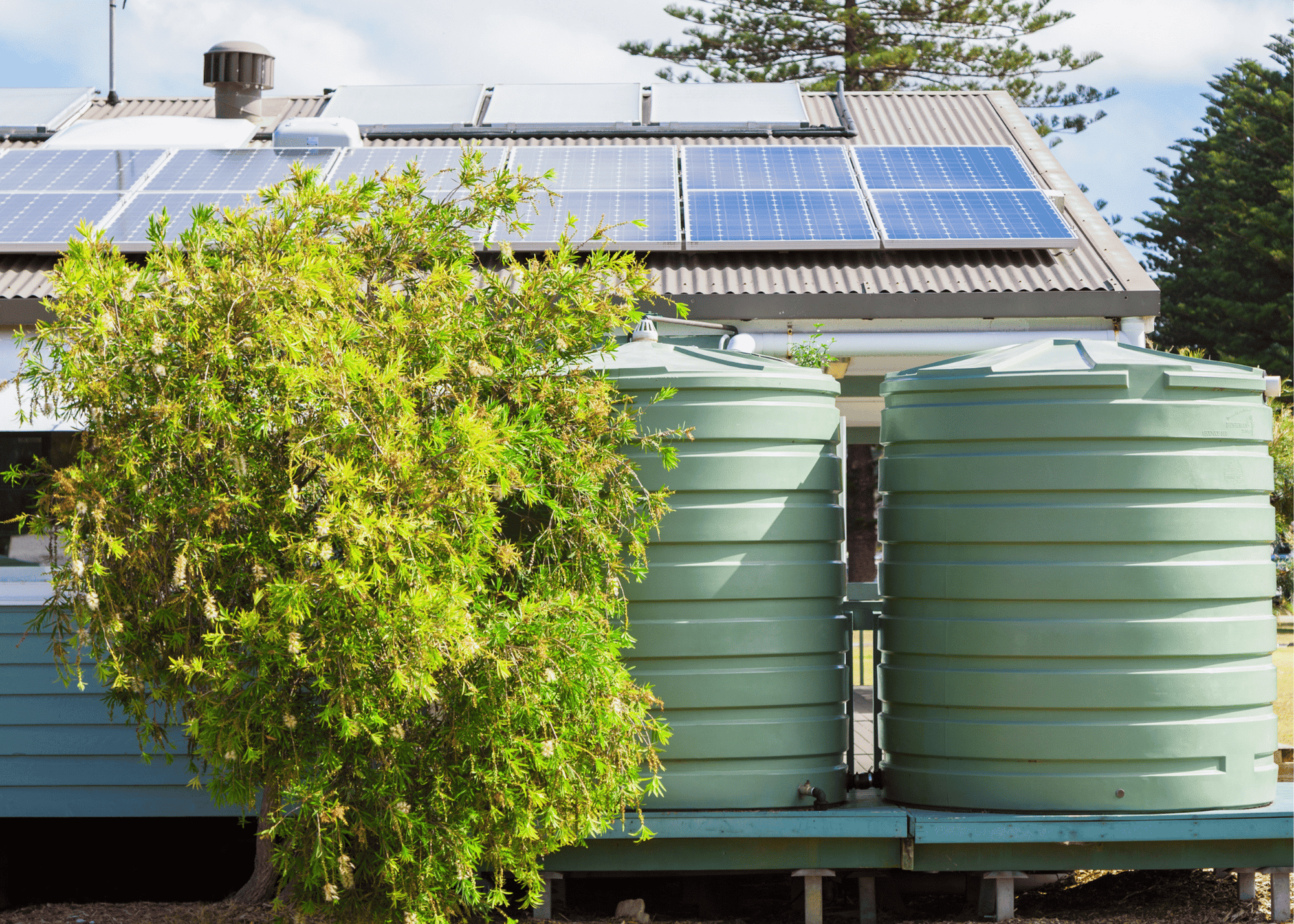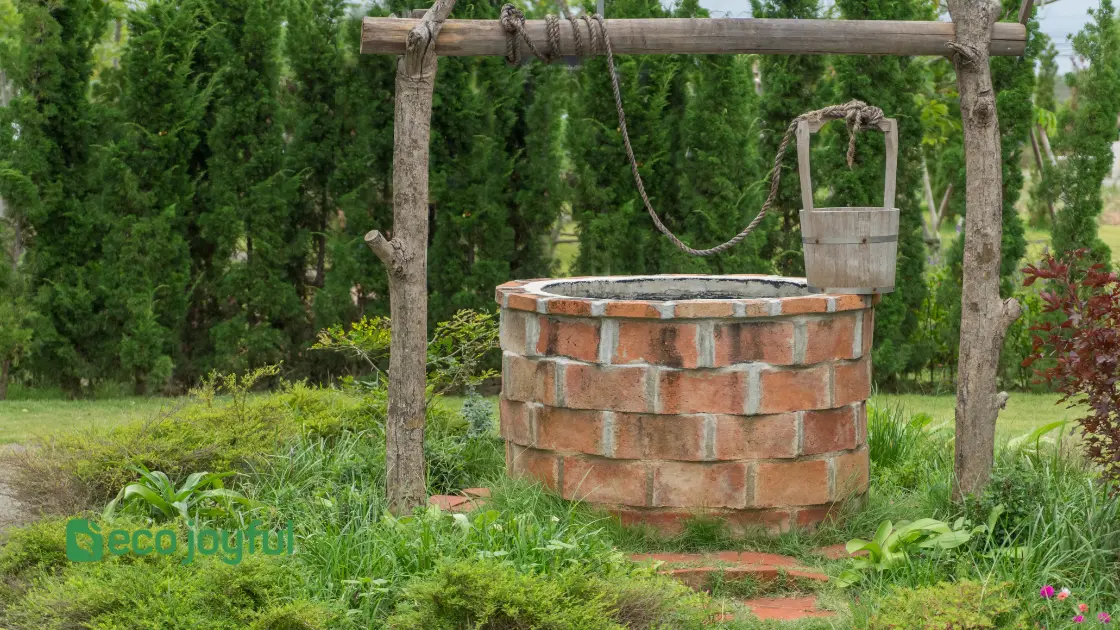While living off-grid, understanding the water management cost factors of the systems is essential before making a decision. Off-grid living focuses on independent water sources rather than municipal water sources. Before managing your water system independently, you must plan and calculate all costs. Thus, you can utilize your available resources according to your needs. In order to help you make an informed investment, this guide attempts to give a thorough breakdown of the expenses related to installing an off-grid water system.
Off-grid systems can utilize a variety of water sources, including surface water systems, rainwater collection, and wells. Every system has a different set of expenses, upkeep requirements, and installation challenges. To prevent shocks later, it’s critical to carefully analyze these factors.
Table of Contents
1. Off-Grid Water System: What Is It?
The infrastructure and source are the primary distinctions between off-grid and on-grid water systems. These systems don’t rely on public utilities for their water supply; instead, they use natural sources such as surface water, groundwater, or rainfall. Off-grid systems are self-sufficient and frequently involve more work for water source, storage, and treatment than on-grid systems, which draw from public or municipal water supplies.
Typical kinds of off-grid water systems consist of:
- Well Water Systems: Subterranean aquifers provide water through drilled wells.
- Rainwater harvesting: This process involves gathering water from roofs, storing it in tanks, and then filtering it before using it.
- Natural Sources: Spring or surface water refers to water that comes from nearby streams, rivers, or springs.
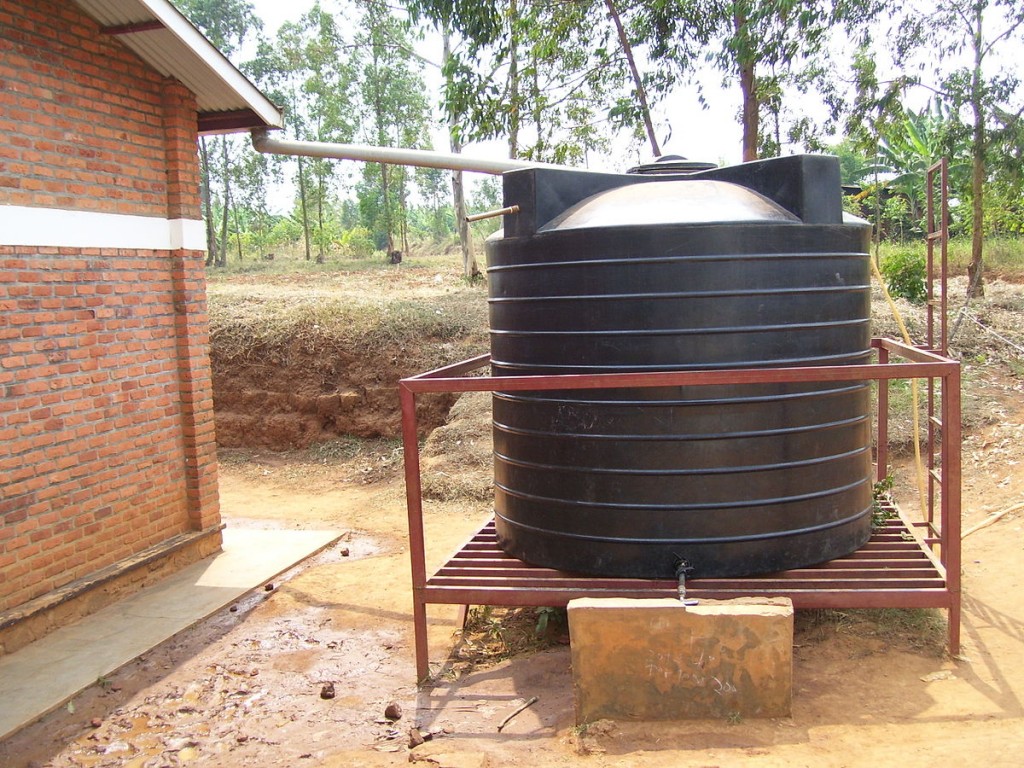
2. Factors Influencing Overall System Cost
The overall cost of your off-grid water system will depend on a number of factors. These variables will help you choose a system that fits your needs and budget.
- Water Source Quality and Availability: The total cost will depend on the water source’s quality and accessibility. For instance, collecting rainwater may require lower initial costs than constructing a well to access a deep aquifer.
- Size and Layout of the Property: Larger properties with longer distances between the main living area and the water supply may result in higher piping, pump, and filtration system expenses.
- Daily Water Use Requirements: Your daily water use directly influences the system’s capacity and design.To meet the water demands of larger homes or properties with multiple occupants, larger systems will be needed.
- Local Laws and Regulations: In some areas, establishing specific water systems, particularly surface water or well systems, may require permits. Your budget should account for these expenses.
- Installation Complexity (DIY vs. Professional): While hand installation is possible for some off-grid systems, professional installation may be necessary for more complex systems. Costs for professional services will inevitably rise because of labor and skill.
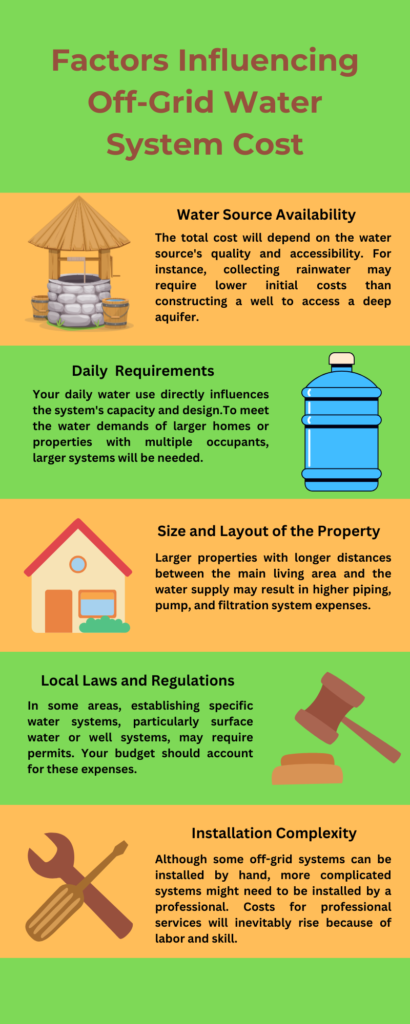
3.1 Well Water Systems
Well water systems are a common off-grid option that offer a steady supply of water, particularly in isolated or rural locations. However, a number of variables can cause the overall cost to vary greatly.
Cost-affecting Factors
- Depth of Well: The cost of the drilling procedure increases with the depth of the well. If the groundwater is deeper, drilling shallow wells can be less expensive, but deeper wells require more work and specialized equipment. Drilling deep wells (greater than 300 feet) can be significantly more costly than shallow ones.
- Pump Type: Depending on the well’s depth, several pump types are available. Jet pumps, or shallow well pumps, are used for wells that are less than 25 feet deep. These can be less costly, usually costing between $200 and $600. Submersible pumps, which can cost anywhere from $500 to $2,000 or more, depending on the depth and power needed, are necessary for deeper wells.
- Geological Conditions: The local geology may also have an impact on drilling costs. Drilling is more costly and challenging on rocky or rough ground. On the other hand, sandy, soft soil might make drilling less expensive.
- Location of the Well: Installation costs increase with the distance between your well and the main residence or power source. The total cost increases when pipes and electrical cables are run from the home to the well.
- Permits and Regulations: Drilling a well in some places necessitates following local laws or obtaining licenses. Permits and inspection fees can raise the overall cost by several hundred to a thousand dollars.
Costs of Components
Well pump: A well pump transports water from the well to your home. Usually found in deeper wells, submersible pumps range in price from $500 to $2,000, depending on brand and power.
Pressure Tank: A pressure tank ensures consistent water pressure throughout your plumbing system. Pressure tanks can cost anywhere from $200 to $500, depending on their size and type.
Installation and Piping: The price of installing the pipes that carry water from the well to the house can mount up rapidly. Depending on the terrain and distance, installation can cost anywhere between $1,000 and $3,000.
Water Treatment System: To get rid of impurities like iron, sulfur, or bacteria, many wells need to have their water treated. Reverse osmosis and UV sterilizers are examples of more complicated systems that might cost $1,000 or more, while basic filtration systems start at about $200.
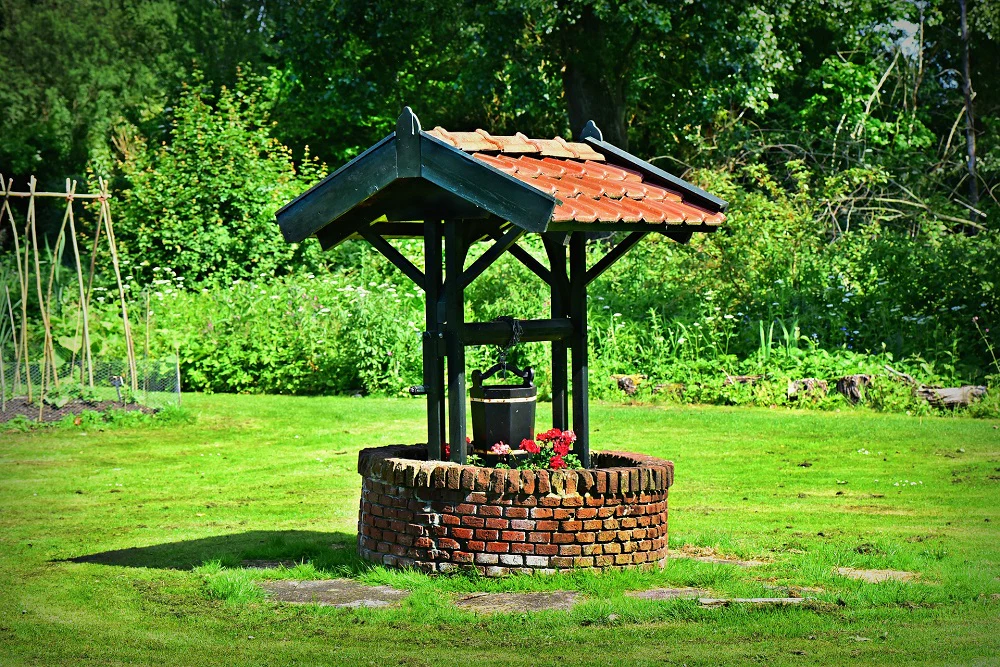
3.2 Rainwater Collection Systems
Rainwater harvesting systems store rainwater for houses, gardening, and other non-potable uses. Rainwater harvesting systems are cheaper to install than other off-grid solutions; however, the cost varies.
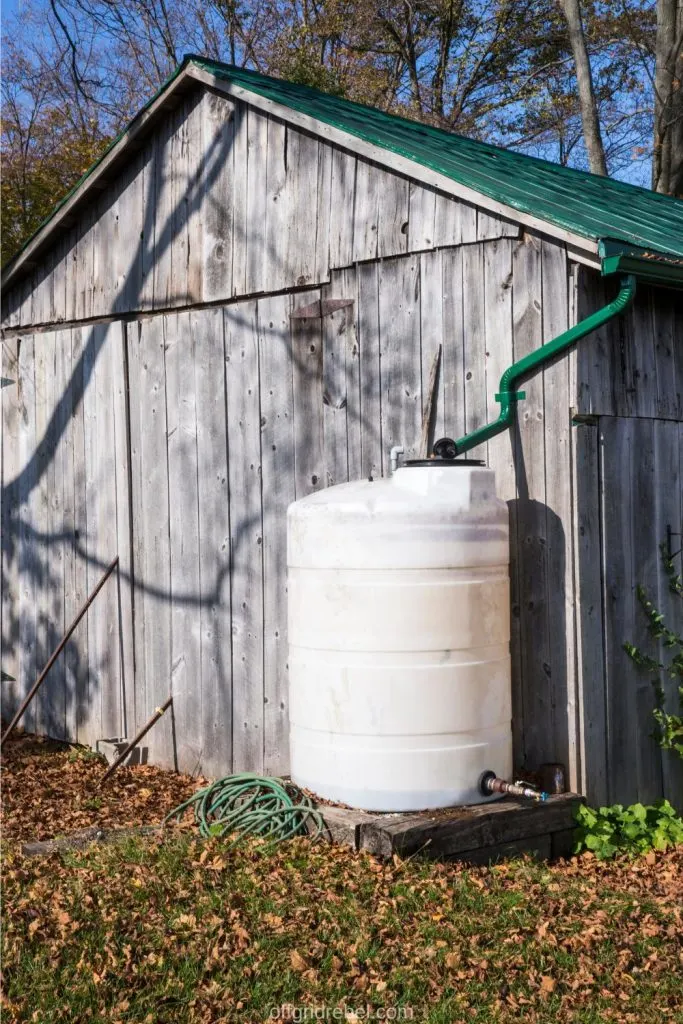
Costs of Components
Costs for gutters and downspouts: Rainwater collection requires proper gutter and downspout systems. Gutter guards and downspouts screens keep debris out. These systems cost $200–$500, depending on home size and installation complexity.
First Flush Diverters: To prevent debris and impurities from entering the system, first flush diverters direct rainwater flow away from the collection tank. These usually cost $100–300.
Rainwater Storage Tank: Size and material determine storage tank prices. Small plastic tanks (500 gallons) cost $300, whereas larger ones (2,500–5,000 gallons) cost $1,000–$3,000. Durable materials like metal or concrete may cost more.
Pump: Pump the water from the tank into your home. Basic pumps cost $100–300. A higher-capacity pump or automation system may cost $500 or more.
Filtration and Treatment Systems: Rainwater often needs filtering to remove dirt, leaves, and other contaminants. UV and activated carbon filtering systems cost $500 or more, while simple systems cost $100.
Pipes and Plumbing: The distance and complexity of your plumbing system will determine the cost of pipes and fittings to convey water from the tank to the residence. This usually costs $200–$500.
3.3 Surface Water Systems (River/Lake Systems)
Water comes from rivers, streams, lakes, and other surface sources in surface water systems. These systems can provide a continuous supply, but water sourcing and purification are complicated, so they cost more upfront.
Cost-affecting Factors
Water source distance: Pipes and pumps cost more the farther your property is from the water source. This can dramatically raise system costs. Large pipes may be required if the water source is far from your home, which would increase material and labor costs.
Pumping: The height and flow rate of the water source may require powerful pumps to bring water to your residence. Pumps with higher capacities cost $1,000 to $3,000, plus electricity bills.
Water Treatment: Surface water needs extensive filtration and purification before usage. Chemicals, sediment filters, and UV sterilizers are available. These can cost $500 to $2,000, depending on treatment system sophistication.
Seasonal Variation: Dry summers and snowy winters may require extra systems to provide a stable water supply year-round. This may raise costs.
Permits and Regulations: Surface water systems may need permits like well water systems. Include regulatory fees in your budget.
3.4 Water Storage Tanks
Your off-grid water system needs water storage tanks, especially if the water source is intermittent. Storage tank prices depend on size, material, and complexity.
Cost Range
Small Tanks (500–1,000 gallons): Smaller households or auxiliary water systems utilize them. These tanks cost $250–$1,000, depending on material (plastic, steel, etc.).
Medium Tanks (1,000–5,000 gallons): Average homes utilize these. Plastic or fiberglass tanks of this size can store water for several days.
Large Tanks (5,000+ gallons): Larger properties, homesteads, and households with significant water usage may require enormous tanks (5,000+ gallons). With robust materials like steel or concrete, these tanks might cost $5,000 to $7,500 or more.
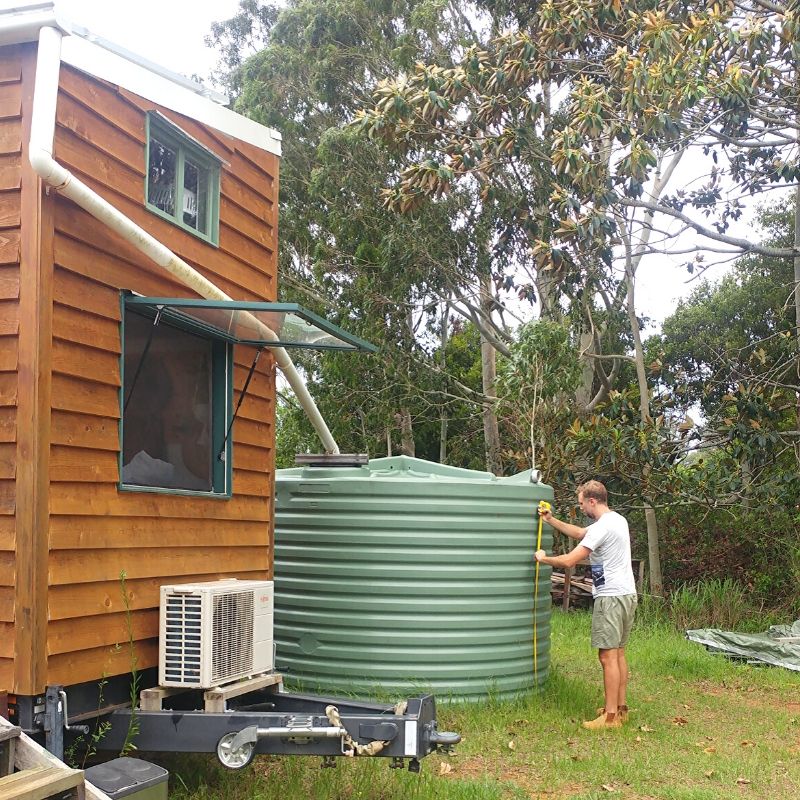
Additional Costs
Pumps: Often required for water transfer from storage tank to home. Pumps cost $200 to $1,500, depending on kind and capacity.
Plumbing and Fittings: Installing plumbing to bring water from the tank to your residence costs $200–$500. This cost may rise if your system has extensive plumbing or is vast.
Tank maintenance: To keep water potable, tanks may need cleaning. Tanks may need protective coatings or additional filtration to prevent contamination. Maintenance can cost $100–$500 annually.
4. Calculating Off-Grid Water System Costs
The entire cost of an off-grid water system includes installation and upkeep.
Initial Installation vs. Long-Term Maintenance Costs: Maintenance is necessary to keep your system functioning smoothly, despite the high upfront costs. Plan for pump replacement, filter system maintenance, and repairs.
Estimating Future Water Usage and Costs: In order to choose the proper system and establish its capacity, you must predict your future. water usage and costs. Systems with more storage cost more, but they may be cheaper over time if you use more water.
Planning for Repairs and Unexpected Costs: Due to pump failures, obstructions, or other issues, off-grid water systems, especially well systems, may need unexpected repairs. Have a backup budget for these instances.
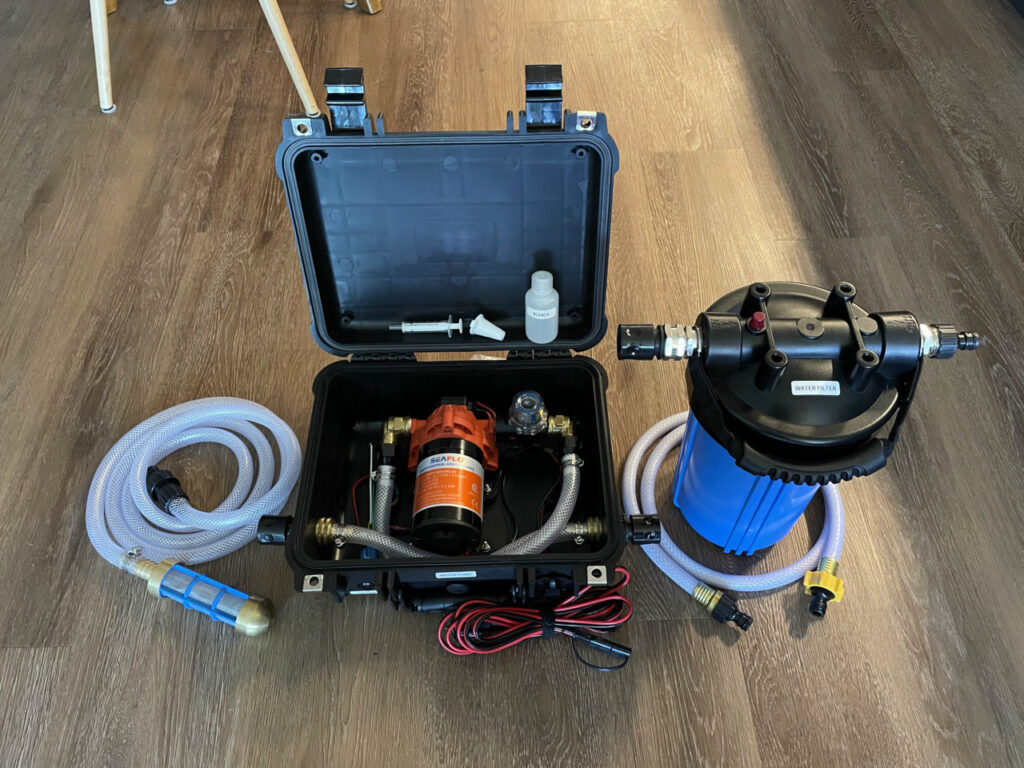
5. Additional Costs to Consider
There may be hidden fees when installing an off-grid water system. These include equipment, backup systems, and other infrastructure that keeps your system running smoothly.
Filters, Pumps, and Water Treatment Devices: Pumps transport water from the source to your residence, and filters clean and protect it. UV purifiers or reverse osmosis systems may be needed depending on the water supply. Prices range from $100 to $2,000.
Backup Power Systems (Solar, Generators): Off-grid water systems often rely on electrical pumps, and a backup power system can ensure your water supply continues if there’s a power outage. Solar power systems or generators can cost $1,000 to $5,000 or more, depending on energy needs.
Water Heater Costs: Water heaters increase off-grid water system costs. Off-grid water heaters cost $500 to $2,500, depending on the solar, gas, or electric source.
Land Expense: If your off-grid system needs land for water source installation (like well digging), consider the expense. Location and availability will determine this cost, but it can be large in rural or distant places.
Permitting and Regulatory Compliance Costs: Different locations require permits for drilling wells, installing surface water systems, and harvesting rainwater. Local rules can set permit prices at $100 to $1,000 or more.
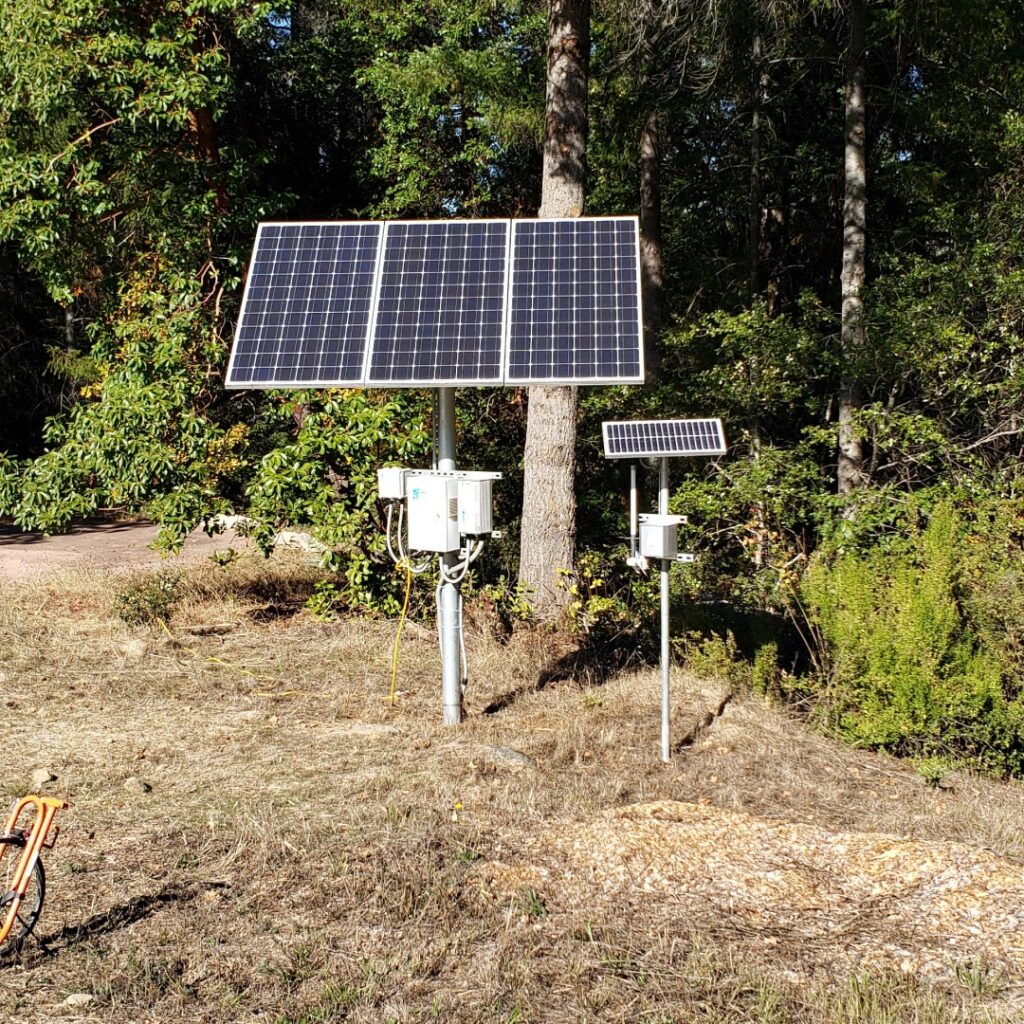
6. Financial Benefits of an Off-Grid Water System
An off-grid water system may appear costly to set up initially, but there are a number of long-term financial advantages that make the investment worthwhile.
Long-term Savings: Over time, off-grid water systems can drastically lower your water expenses because they do not require municipal water services. You might save hundreds to thousands of dollars a year, depending on where you live and how much water you use.
Increased Property Value: Properties with off-grid water systems may see an increase in value. Properties with self-sufficient water systems draw a lot of purchasers, especially in rural areas or locations where water shortages are a problem. In the real estate market, having an off-grid system installed might increase the value of your home.
Potential for Tax Incentives: Installing off-grid systems, such as water systems, may qualify for tax benefits or refunds in some areas. These can partially defray the initial installation expenses. To find out if your location has any financial incentives, contact your utility company or local government.
7. Lowering Off-Grid Water System Costs
There are various ways to make off-grid water systems cheaper without sacrificing quality.
DIY Installation: Labor costs are much lower when installing the system yourself. DIY installation can save up to 50% if you have the skills and tools. Only use this for basic systems or if you’re comfortable with plumbing and electrical work.
Selecting Affordable Materials: Affordable materials reduce costs. For instance, plastic or fiberglass tanks are cheaper than steel or concrete tanks. Make sure your materials are sturdy and climate-appropriate.
Optimizing Water Use: Less water means a smaller, cheaper system. Installing low-flow faucets, efficient appliances, and water-saving devices reduces daily water demand, cutting system size and expense.
Finding Cost-effective Filtration Systems: Off-grid water filtration can be expensive. Look for affordable yet reliable filtration methods to reduce costs. Depending on your water source, gravity-fed or basic filters may work.
8. Financing Options for Off-Grid Water Systems
There are a number of financing alternatives available to help make the initial cost of an off-grid water system more affordable if that is a concern.
Loans and Grants: A number of financial organizations provide loans designed especially for off-grid installations, such as water systems. Additionally, funds are occasionally available from public or private initiatives to encourage environmentally friendly or sustainable water projects. These loans may offer flexible terms or cheap interest rates.
Crowdfunding or Community Support Options: Crowdfunding is another option, particularly for communities looking to fund a shared off-grid water system. If the community perceives the system as beneficial, local community support or donations could also contribute to its funding.
Financing Through Government Programs: Low-interest loans or refunds are one way that some local governments and utilities provide funding for off-grid installations. These programs are often aimed at encouraging sustainable practices and reducing reliance on public utilities.
9. Professional vs. DIY Installation
Whether you install your off-grid water system yourself or employ a professional affects its cost and functionality.
| Pros of DIY Installation | Cons of DIY Installation |
| 1. Cost Savings: DIY installation might save you a lot of money on labor. | 1. Time-Consuming: Complex plumbing, electrical, and heavy equipment systems can take hours to install DIY. |
| 2. Full Control: You can personalize the installation process to your needs. | 2. Potential Mistakes: Without expert experience, you may make mistakes that increase repair costs or system inefficiency. |
| 3. Learning Experience: Installing the system yourself can help you understand water system mechanics. | 3. Permits: You may have to manage intricate rules on your own, which could delay or increase installation expenses. |
Average DIY/Professional Cost Differences:
DIY Installation: Depending on system complexity, DIY installation can be 50% cheaper than professional installation. A well water system costs $1,500–$3,000 to install yourself, but $5,000–$10,000 with professional aid.
Professional installation: While more expensive, a professional will provide better service and longer-lasting results. Professional installation adds 30-50% to system cost, depending on complexity.
10. The Environmental Impact of Off-Grid Water Systems
Because of their environmental benefits, off-grid water systems are popular for sustainable living.
Sustainability: By using rainwater, wells, or rivers, off-grid solutions reduce reliance on municipal water systems, which use energy-intensive pumping and treatment.
Reducing Dependency on Municipal Water: This is especially crucial in regions that are experiencing droughts, water shortages, or excessive groundwater extraction. You may help preserve common water supplies by using your own water supply.
Water Conservation: Using rainwater or recycled water for non-potable uses like laundry or irrigation is one of the many water-saving techniques that many off-grid systems promote. This encourages more sustainable water management and lessens the demand for freshwater.
11. Off-Grid Water System Maintenance
To guarantee the longevity and effectiveness of your off-grid water system, maintenance is necessary. The secret to preventing expensive repairs and system failures is routine maintenance.
Regular Maintenance Tasks: The majority of off-grid water systems, particularly those that use surface water or rainwater collection, need to have their filters changed on a regular basis. Depending on usage, filters should be inspected and changed every six to twelve months. It’s also critical to check tanks, pumps, and pipes for obstructions, leaks, and damage.
Maintenance Costs Over Time: Although routine maintenance is usually inexpensive, you should account for it in your budget. Although larger systems or more intricate water treatments may cost more, basic inspections, UV light changes (in treatment systems), and filter replacements often cost less than $200 annually.
Importance of Routine Maintenance: Ignoring routine maintenance might result in costly repairs. For instance, fixing a pump failure brought on by poor upkeep or clogged filters may cost several hundred dollars. Regular maintenance ensures the detection and resolution of minor issues before they escalate into more serious and costly ones.
12. Common Challenges and Solutions
Off-grid water systems have advantages and drawbacks. Understanding these difficulties and how to solve them will improve system management.
Water Contamination Issues and Solutions: Germs, chemicals, or silt can contaminate surface water and wells. For this, regular water testing is essential. High-quality filters, UV purifiers, and reverse osmosis systems can remove impurities and make water safe to drink.
Managing Water Shortages or Fluctuations: Off-grid water systems are prone to water shortages, especially in seasonal rainfall or dry spells. To avoid this, you need enough storage. During dry spells, a large rainwater tank or backup well can provide water. Low-flow fixtures and effective watering can further cut demand.
System Failures and Troubleshooting: Off-grid water systems might fail like any mechanical system. Pump failures, pipe leaks, and filter clogs are common. Understanding your system and troubleshooting it saves time and money. If water pressure lowers, examine the pump and pressure tank; if water quality changes, test the filter or water source. Complex failures may require professional assistance.
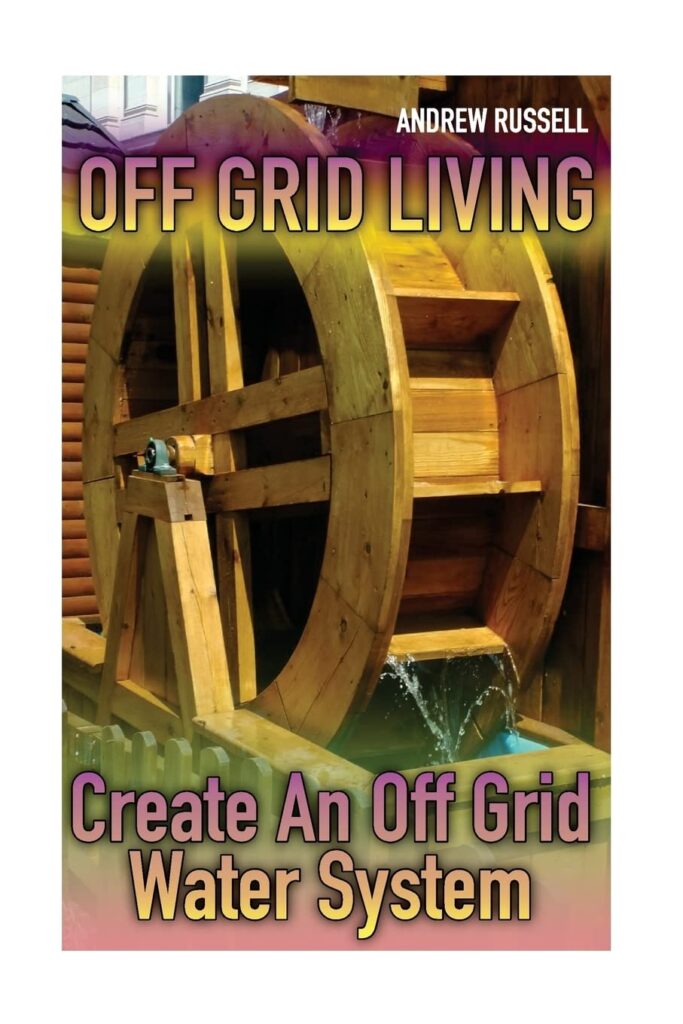
Conclusion
In conclusion, off-grid water systems can save money, protect the environment, and remain independent from municipal utilities. Research your alternatives for rainwater gathering, wells, and surface water systems. Assess your water needs, local conditions, and resources to find the right off-grid water option for your home or property.
FAQs
A typical off-grid water system costs how much?
Off-grid water systems cost $1,500 to $10,000, depending on kind. Rainwater harvesting and surface water systems are cheaper than well water systems. Pumps, filters, and storage tanks may cost extra.
Can I build my own off-grid water system?
Yes, you can install rainwater harvesting yourself; however, wells and surface water systems may need professional installation to comply with local requirements.
Are there government incentives or tax reductions for off-grid water?
To promote sustainability, some countries give tax incentives, refunds, or grants for off-grid installations. Contact local governments or utilities for programs.
Which off-grid water filtering system is best?
A successful filtering system depends on the water source. UV screens eliminate germs, while reverse osmosis removes pollutants and heavy metals. Sediment filters remove debris, and carbon filters retain chlorine and insecticides. Many recommend combining these.
How can I manage off-grid water?
Regular maintenance includes changing filters every 6–12 months, checking pumps and pipes for leaks, cleaning storage tanks annually, and testing water quality. Your backup power system must work too.
What are the finest dry-climate off-grid water sources?
If you have enough storage, rainwater harvesting is greatest in arid climates. Though drilling is costly, wells supply reliable water. With sufficient filtration, rivers and lakes can work. In coastal places, desalination may work.
Can I use solar electricity with my off-grid water?
Solar power is ideal for pumps and water treatment systems, reducing power dependence and making your system more sustainable.
How much water storage does an average home need?
Depending on water usage and availability, a typical household needs 1,000–2,000 gallons for short-term storage and 3,000–5,000 for long-term storage. Make sure your rainwater storage meets your collection potential.




